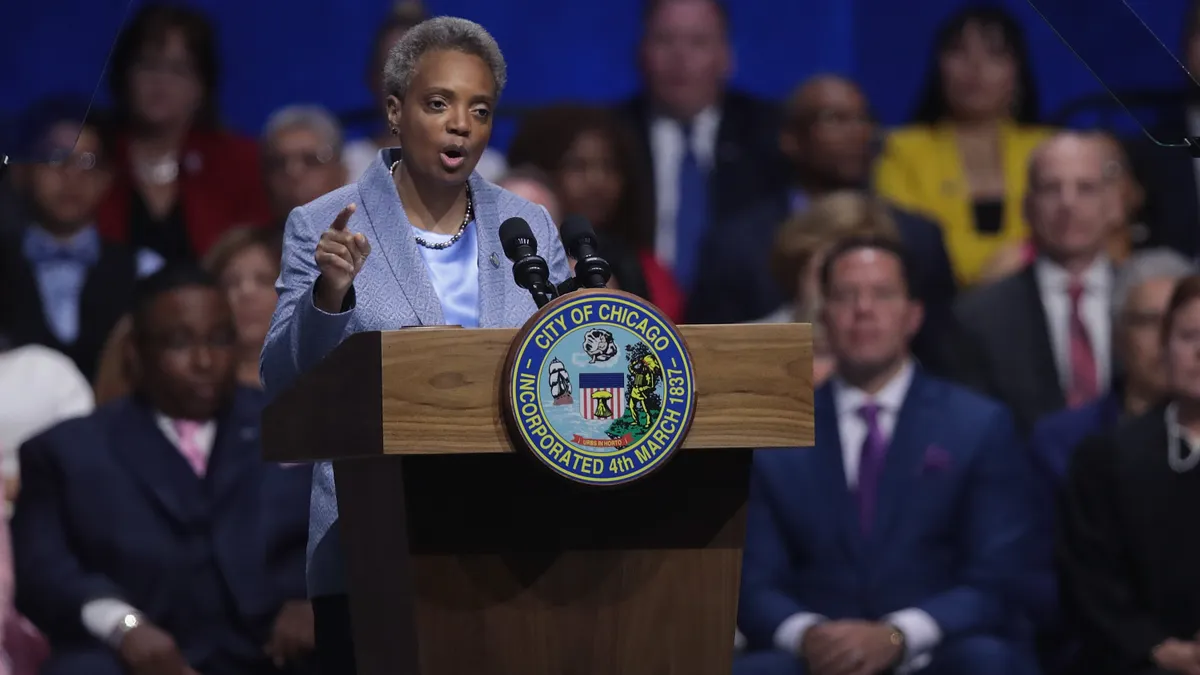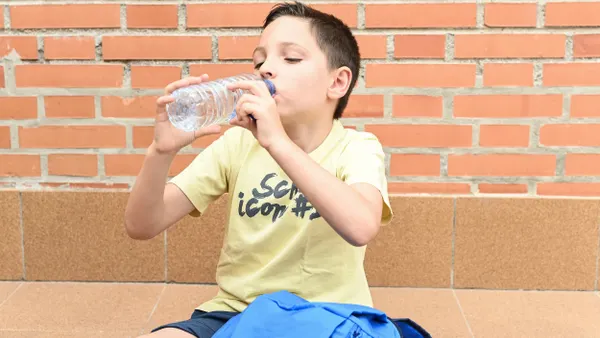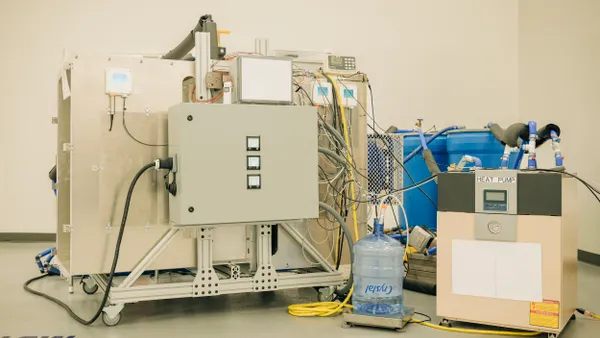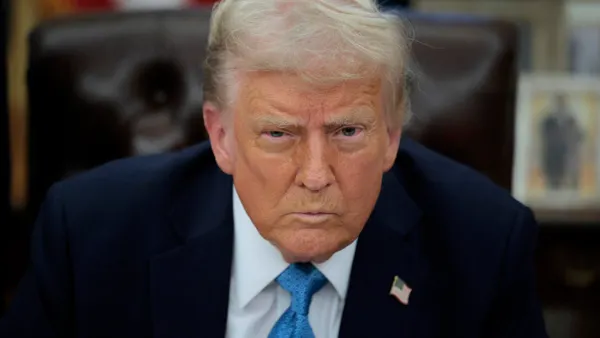Dive Brief:
- With her term nearing its May 15 end, Chicago Mayor Lori Lightfoot signed an executive order Wednesday requiring completion by September 1 of an ongoing project to identify which neighborhoods experience the greatest environmental burdens, health conditions and social stressors.
- The order also directs the city’s chief sustainability officer to designate an environmental justice project manager to coordinate cross-departmental efforts, requires the development of community engagement standards and formally establishes a community advisory body and interagency working group to further environmental justice.
- Lightfoot acknowledged in a statement that “there are still years of work ahead” to remedy harms in environmental justice communities. “Now we pass the baton to the incoming administration and City Council,” she said.
Dive Insight:
The Lightfoot administration touted in a Wednesday news release its environmental justice work over the last four years, including $188 million in environment-related investments through the Chicago Recovery Plan and the development of climate action, public health and community resilience plans.
However, Chicago environmental justice advocates and residents have called the administration out for breaking promises and failing to be transparent. It has been “exhausting” pushing the city to make environmental justice reforms, but Lightfoot’s order is a sign “we’re headed in the right direction,” environmental activist and Southeast Side resident Gina Ramirez told Block Club Chicago, a nonprofit news organization.
Lightfoot will be replaced by mayor-elect Brandon Johnson, whose campaign promised to make Chicago a sustainability leader and address pollution-burdened neighborhoods.
The so-called Cumulative Impact Assessment that Lightfoot’s executive order requires will be presented by September 30 to Johnson and the chair of the city council Committee on Environmental Protection and Energy, the news release said. In addition to providing data on how environmental burdens and stressors vary across Chicago, the presentation will include environmental justice commitments and goals from city departments as well as draft language for broader policy reform.
The environmental justice project manager required by the executive order will oversee the improvement of the city’s process to notify residents in environmental justice neighborhoods about zoning, permitting and enforcement activities. The person in this role will help develop a procedure for residents in these neighborhoods to raise complaints of discrimination and create standards for public participation, including a plan to engage those who don’t speak English well.











